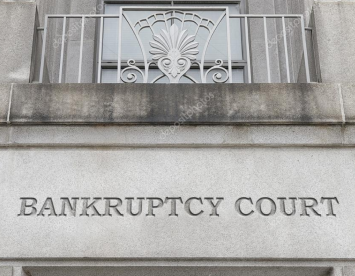
Chapter 7 Bankruptcy
Chapter 7 bankruptcy involves the liquidation of assets. This means that the debtor’s assets will be sold and the proceeds used to pay off all or part of the debt. The debtor will be able to keep some properties that are exempt from liquidation.
How To File For Chapter 7 Bankruptcy In Austin
 Chapter 7 bankruptcy is the first thing that comes to mind when people think of bankruptcy. This type of bankruptcy can be a real life-saver for those who are struggling with overwhelming debt and offers a fresh start. But it’s important to understand what Chapter 7 entails before making any decisions.
Chapter 7 bankruptcy is the first thing that comes to mind when people think of bankruptcy. This type of bankruptcy can be a real life-saver for those who are struggling with overwhelming debt and offers a fresh start. But it’s important to understand what Chapter 7 entails before making any decisions.
In a nutshell, Chapter 7 bankruptcy is a way to discharge unsecured debts like credit card bills and medical expenses. It also allows you to keep certain assets like your home and your car. In rare cases, you may have to give up other property.
To qualify for Chapter 7, you must pass a means test that looks at your income and expenses to see if you can afford to repay your debts. If not, you may still be able to file under Chapter 13 which has different eligibility requirements.
One of the biggest benefits of filing for Chapter 7 is that it provides immediate relief from creditor harassment and lawsuits. The process usually takes around four months from start to finish, after which time all eligible debts are discharged.
Keep in mind that there are some potential drawbacks associated with this type of bankruptcy such as damage to your credit score.
Requirements For Filing Bankruptcy In The United States
The requirements for filing for Chapter 7 bankruptcy in the United States are as follows:
- Proof of your credit counseling class.
- You’ll need to gather financial records such as bank statements, credit card statements, and loan documents.
- Filing for Chapter 7 bankruptcy requires listing all of your real and personal property and all your debts.
- You must have filed all tax returns you were required to file for the past (4) years.
- The filing fee will be $338.
Your local bankruptcy court is where your filing will take place. You file in the judicial district where you have lived the most amount of time over the past 180 days. The process can take up to four months after the petition is filed.
What Are The Steps Involved In Filing For Chapter 7 Bankruptcy?
When you’re ready to file for Chapter 7 bankruptcy, there are a few things you need to do first. The most important is gathering all of the required documents–this includes your tax returns from the past two years, information about your income and expenses, as well as information about child support payments or alimony.
In addition, you have to show all income from all sources for the past 7 months. Wages, unemployment, disability, social security, and self-employment income (including gig work) are all counted.
What Are The Consequences Of Filing For Chapter 7 Bankruptcy?
When you file for Chapter 7 bankruptcy, there are consequences that come along with it. For example, you’ll have to answer questions about your income and debts.
Keep in mind that most people cannot file for bankruptcy without submitting their previous year’s tax return. Also, a bankruptcy filing will stay on your credit report for (10) years–although you can certainly build good credit after you file your bankruptcy.
What Are The Benefits Of Filing For Chapter 7 Bankruptcy?
There are a number of benefits to filing for Chapter 7 bankruptcy. These include:
- The elimination of most unsecured debts.
- The ability to keep assets, such as a home or car.
- A fresh start and the ability to rebuild credit.
- Protection from creditors and harassment.
- The ability to discharge certain tax debts.
If you are considering bankruptcy, it is important to understand all the options available to you. Speak with an Austin Bankruptcy attorney who can help you decide if Chapter 7 is the right choice for you.
How Does Filing For Chapter 7 Bankruptcy Affect Your Credit Score?
One of the biggest concerns people have when they consider bankruptcy is how it will affect their credit score. Chapter 7 bankruptcy can stay on your credit report for up to 10 years, but it doesn’t mean your credit score will be bad forever.
Your score may start to improve as soon as you file for bankruptcy, and it’s likely to continue increasing over time. The length of time that the bankruptcy stays on your report also affects your score, so keep that in mind if you’re thinking about filing.
It’s important to remember that a low credit score doesn’t mean you can’t get approved for a loan or a mortgage–it just means you may have to pay more interest or put down a larger down payment. And if you do decide to apply for a loan while your bankruptcy is still on your report, be prepared to answer some questions about it.
How Long Does It Take To File For Chapter 7 Bankruptcy?
The time to file for Chapter 7 bankruptcy varies based on factors such as delays, your financial situation, and where you live. In some cases, it can take up to six months.
However, the majority of people can file their bankruptcy forms within one week if they’re organized. The meeting with the trustee (often called a Meeting of Creditors, even though creditors rarely attend) will take place about one month after you file for bankruptcy. And finally, the Order of Discharge officially discharges your debt is entered approximately (2) months after your hearing.
How Much Does It Cost To File For Chapter 7 Bankruptcy?
 When you’re considering filing for Chapter 7 bankruptcy, one of the first things you’ll want to know is how much it’s going to cost. The good news is that there are a few ways to file and the costs vary depending on which option you choose.
When you’re considering filing for Chapter 7 bankruptcy, one of the first things you’ll want to know is how much it’s going to cost. The good news is that there are a few ways to file and the costs vary depending on which option you choose.
The court charges a $338 filing fee. In some circumstances, this fee can be waived–but this is exceedingly rare. Bankruptcy attorneys charge anywhere from $1,500 and up, and is usually a flat fee; in other words, this fee will cover all the normal parts of a bankruptcy filing from engagement to discharge. Be sure to read your contract with your attorney carefully; if additional fees will be charged, it must be explained in the contract.
There are also two required courses–Consumer Credit Counseling (pre-filing) and Financial Management (post-filing). Some firms, like Austin Bankruptcy Lawyers, includes this cost in the flat fee. However, some firms require that you pay this costs out of your pocket, and you can expect to pay $10-$25 for each course. Despite all these expenses, remember that bankruptcy allows you to wipe out all your debt! So if you’re in significant debt, it may make financial sense to file.
What Assets Can You Keep If You File For Chapter 7 Bankruptcy?
When you file for Chapter 7 bankruptcy, you are allowed to keep a certain amount of assets. In Texas, you can choose between the federal exemptions and the state exemptions. There are good reasons to choose one over the other, and your attorney can explain the benefits of each. Ultimately, the goal is to protect as many of your assets as possible.
The Bankruptcy Code has rules called exemptions which allow you to keep certain types of property in Chapter 7 cases. Any property not protected by the bankruptcy exemptions is considered nonexempt property and can be seized by the trustee.
The exemptions are generous enough to allow most people to keep reasonable cars, homes, and other assets.
What Debts Are Discharged When You File For Chapter 7 Bankruptcy?
There are some exceptions to discharge: child support and alimony cannot be discharged through Chapter 7 bankruptcy. Additionally, any debts incurred while intoxicated are non-dischargeable in the bankruptcy. Debts incurred due to fraud are also subject to non-dischargeability, but may be determined through a process called an Adversary Proceeding.
If a creditor objects to expenditures for luxury goods purchased or for cash advanced within 70 days of the filing of bankruptcy, it may still be necessary to repay that portion of the balance.
Can You File For Bankruptcy More Than Once?
There’s often a wait time before you can file another petition for bankruptcy. For example, if you file a Chapter 7, you cannot file another Chapter 7 for eight years.
The trustee assigned to your case will review the petition, schedules, tax returns, and bank statements, including what items are exempt from seizure. This includes things like jewelry and the equity in your home.
If there is no non-exempt property to sell, then the Chapter 7 trustee will determine it to be a “no asset” case.
Once you’ve completed all of the necessary steps and been discharged from Chapter 7 status, you’re free to start fresh with a clean financial slate!
& Let’s Discuss How We Can Best Help Eliminate Your Specific Financial Struggles!

 Credit counseling is required to help you determine if there are other options you can explore before you file for bankruptcy. You must go through the course within six months prior to filing for bankruptcy. The agency will provide you with a certificate that you will file with the court as proof.
Credit counseling is required to help you determine if there are other options you can explore before you file for bankruptcy. You must go through the course within six months prior to filing for bankruptcy. The agency will provide you with a certificate that you will file with the court as proof.